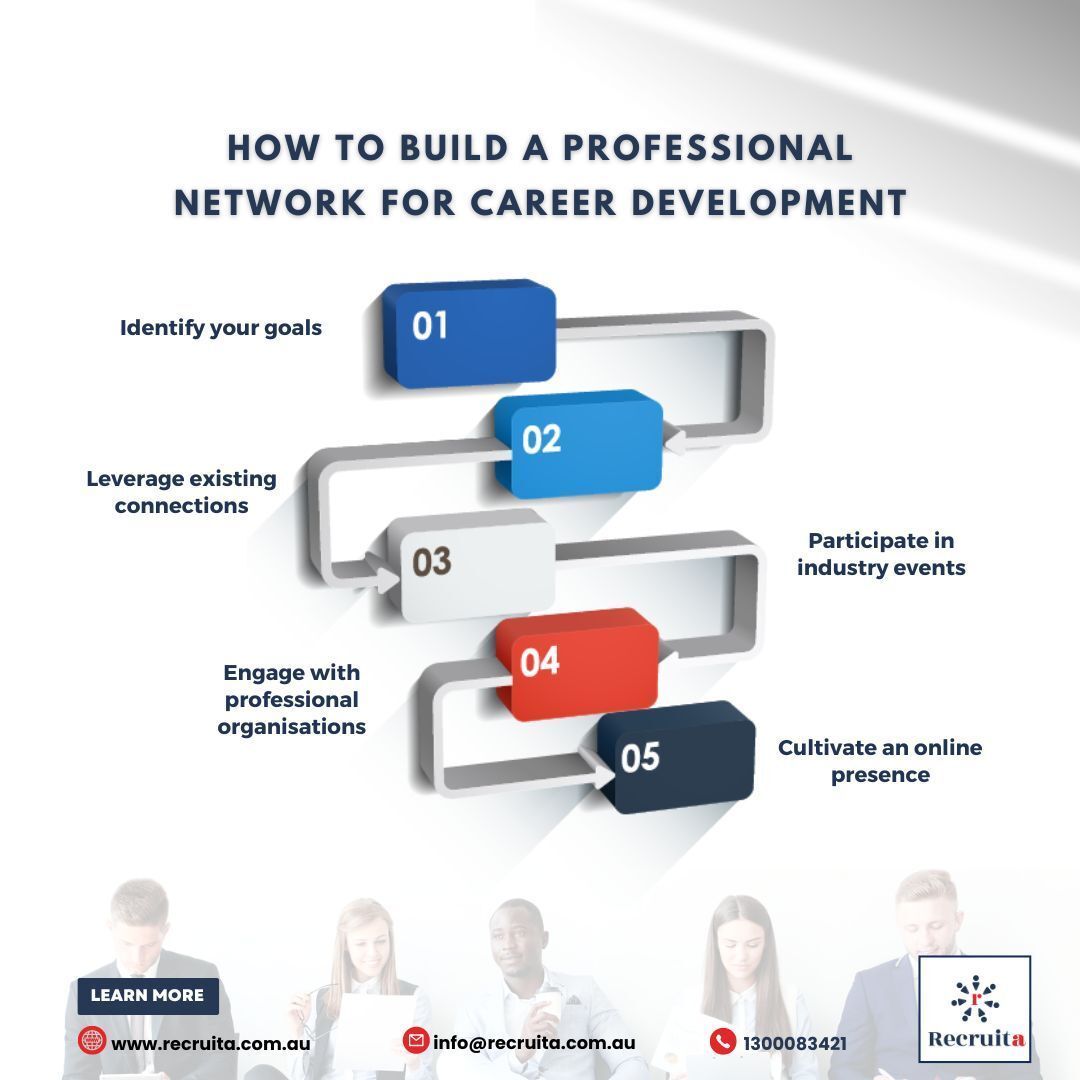How to Get a Job: 10 Effective Tips to Land Your Next Role
Make the most of your job search with these best practices, whether you're switching careers or looking for your first job.
Looking for a new job? Or perhaps your first job ever? There are certain practices to consider when applying for jobs that can help you stand out from other candidates with similar educational or professional experiences.
In the past decade, a boom in technology has influenced the economy, including the largest growth and adoption of internet usage since the late 1990s. The types of jobs available have shifted as a result, as well as the ways we search for them in the digital age. These days, many people turn to Google for advice on their job search, and LinkedIn and other job sites to find job openings.
It’s a good time to apply for jobs and to build the skills you’ll need in your dream career. This article offers effective tips and best practices for getting a job.
How to get a job
There are many ways to get a job. Approaches vary depending on the type of job you’re after, and the industry and competitiveness of the job. Some may find networking and personal connections effective in their job search, but many people rely on the traditional approach of applying to and interviewing for a job. The process can be daunting, but these strategies can help you gain clarity and confidence as you embark on your journey.
1. Reflect on your career aspirations.
While you might try to sit down and apply for any job that you’re qualified for, taking the time to assess your career hopes and dreams can be a more satisfying and productive way to start a job search. Thinking about what makes you come alive can help you narrow down your search to target specific roles and careers.
Read more: How to Answer “What Are Your Career Aspirations?”
Envision your career future. Here are some questions that can help you:
- Are you passionate about a certain cause or industry? (Perhaps you get excited about supporting theatre arts or are interested in finance in emerging markets.)
- Do you want to become a leader of a team or organization, or do you prefer to be a creative and independent producer?
- What salary goals do you have? Do you aspire to earn a six-figure salary?
- Do you value team cohesion and collaboration?
- What kind of lifestyle do you want?
- What skills do you bring to a job role? (For example, do you have a knack for persuading people through spoken or written communication, or are your skills more suited for patient care?)
2. Research potential industries and job roles.
Next, think about the types of industries or roles that you either have experience in or that pique your interest. Research everything you can about the food and beverage industry, for example, if that’s a business area that interests you. Have you considered a career in IT, data analysis, marketing, or UX design?
Say you have a degree in marketing; are you interested in pursuing a career in that field? If so, do you want to work for an agency or in-house for a company or non-profit? What type of marketing do you hope to specialize in—perhaps social media marketing, digital marketing, or content marketing? Drill down in your search to understand the different roles you could play within a field or industry.
If you’re thinking more about your lifestyle, consider remote jobs, jobs that let you travel, or jobs better suited for introverts.
3. Identify your transferable skills.
Once you have a better idea of your career goals and what types of jobs you’re interested in, think about how your experiences can apply to these roles. Identify your transferable skills, including technical skills and workplace skills you have acquired in your personal and professional life.
If you are seeking your first job, your transferable skills might come from extracurricular activities, volunteer work, or daily life (for example, taking care of children or siblings). For those switching jobs or changing careers, you can mine previous work experiences for technical skills like data analytics or data entry, and workplace skills like leadership, creativity, and critical thinking.
Build the right skills for the job you want
Peer into the future. Do the jobs you’re applying for fit into your desired career trajectory? If not, and your transferable skills are not enough to propel you forward, consider building your technical skills to eventually land a job that aligns your skills with your lifestyle and offers a steady paycheck.
With Coursera’s professional certificate programs, you can build the right skills for in-demand jobs in just a few months—no degree or experience required.
4. Build your social media presence.
Now, more than ever, people are finding jobs on LinkedIn. In fact, eight people are hired every minute on LinkedIn [1]. A majority of recruiters (around 87 percent) use it during the hiring process, especially when vetting candidates [2]. Your LinkedIn profile should reflect your current resume, along with links to projects, videos, and content you worked on. A professional, friendly profile photo helps recruiters put a face to the name, while a bulleted list of accomplishments using keywords can boost your credibility.
Though posting on LinkedIn is not necessarily going to get you hired, sharing and liking posts creates engagement and can help you get noticed by potential employers. If you decide to post, consider sharing pictures and summaries of projects you worked on, or articles that demonstrate your industry expertise.
You can even reach out to recruiters on LinkedIn by sending a request to connect or messaging them using InMail. When crafting your message, explain who you are, what you’re looking for, and why you’re hoping to connect with them.
Finally, clean up your presence on other social media platforms. Delete any incriminating photos, such as smoking weed, imbibing alcohol before age 21, or any other activity that could be perceived as unprofessional. Keep your pages private for additional security.
5. Conduct informational interviews.
Breaking into a new industry or field can be difficult, especially if you’re unsure whether that career is right for you. That’s where informational interviews come in. Job seekers can conduct this type of interview to gather insight into a prospective field or job role.
Here’s how an informational interview works:
- Decide what you want to know.
- Reach out and request a meeting.
- Develop a list of questions to ask.
- Get to know your interviewee.
- Send a thank-you note.
- Keep in touch.
Informational interviews build relationships, provide interviewing practice, and even open up future opportunities, especially if you make the effort to keep in touch with your interviewee.
6. Tailor your resume.
For each job you apply to, the best practice is to customize your resume to the job description. Recruiters and hiring managers like to see that you’ve understood their ethos, tone, and overall language and can speak it, too—meaning that your resume reflects their specific jargon (“creative briefs,” rather than “creative requests”). Your experiences should match the role’s requirements, and sometimes you’ll need to highlight or even omit certain skills and experiences. Always double-check your resume for spelling and grammar errors.
Read more: How to Make a Resume for Your First Job (+ Template)
Crafting your resume to demonstrate you are an ideal candidate is not enough. These days, applicant tracking systems (ATS) filter job applications, so you must make sure to strategically include exact keywords and phrases from the job description on your resume.
7. Write a customized cover letter.
This might sound like a lot of extra work, but you don’t necessarily have to write an entirely new cover letter for each job application. However, each cover letter you submit should definitely reflect your enthusiasm for the specific job you’re applying for. You can create a basic cover letter template for each type of job, and mark the places where you’ll tailor information to fit each job.
For example, if you are applying to three types of jobs, such as communications consultant, social media specialist, and marketing analyst, you can create three separate cover letter templates. In each template, list out specific skills and experiences relevant to each job type. Then, when you’re customizing your cover letter for the job, swap out your interest in one company for another, and tweak your language to fit.
8. Prepare for the interview mindfully.
The interview process can be intimidating. It is helpful to remember that an interview is a two-way street—while it may seem like you are proving your worth to an employer, it is also an opportunity to assess whether the employer and role will be fulfilling for you. Preparing for an interview can help you feel more confident, so you’ll present yourself in the best possible light.
To prepare, consider writing down or saying out loud your responses to the most common interview questions. Reflect on the role’s responsibilities, the skills needed to perform the role, and questions a hiring manager might ask to determine if you are the right fit. The role may require several interviews.
If your interview is virtual, and many initial screenings are, you might consider practicing mock interviews with a friend to ensure your tone and body language expresses your enthusiasm properly over the internet. Plus, small adjustments to your setup can make a difference. Clean up any clutter in your background, and make sure your internet, camera, and microphone are reliable and ready long before your interview begins.
Read more: Zoom Interview Tips: A Guide For Your Online Interview
If you expect the interviewer to ask structured behavioral questions, a good practice is to write down several STAR (situation, task, action, result) scenarios and describe them aloud. For panel interviews, try to remember each person’s name and make eye contact with each interviewer while you are speaking.
Job-specific interview questions
Some jobs have very technical skills and responsibilities, for which recruiters will ask questions to gauge a candidate’s ability to perform them. Here are a few guides with interview questions for specific jobs, including project managers, back-end developers, scrum masters, data analysts, UX designers, and IT and marketing roles.
9. Send a thank you email.
Always, always send a follow-up email to thank your interviewers for their time. The best practice is to write a couple of sentences about any highlights from your conversation that resonated with you, and to reiterate your enthusiasm. This simple act of courtesy and gratitude doesn’t require much time but can help solidify a hiring manager’s decision to hire you.
10. Negotiate salary and benefits.
Congrats! After the applying, preparation, interview(s), and thank you emails, you got the job. Now, it’s time to negotiate your salary and benefits. Check sites like Glassdoor for data to confirm that your salary expectations are appropriate for the industry, company, and job role.
These days, it is culturally acceptable and even expected that you will negotiate. Chances are, the job letter comes with salary information. A good rule of thumb, when in doubt, is to negotiate 10-20% above their initial offer, in addition to the benefits package. Often, these packages will be similar for every employee of a company, but year-end bonuses, signing bonuses, and paid time off (PTO) may vary. Do your research, and feel free to clarify any questions with the hiring manager before accepting a job offer.
Next steps
To build new skills for your career and prepare for your dream job, consider earning a Professional Certificate from Coursera. When you join the Coursera Plus community, you get unlimited access to over 7,000 courses, Projects, Specializations, and Professional Certificates taught by top instructors from leading universities and companies.
Source: https://www.coursera.org/articles/how-to-get-a-job



